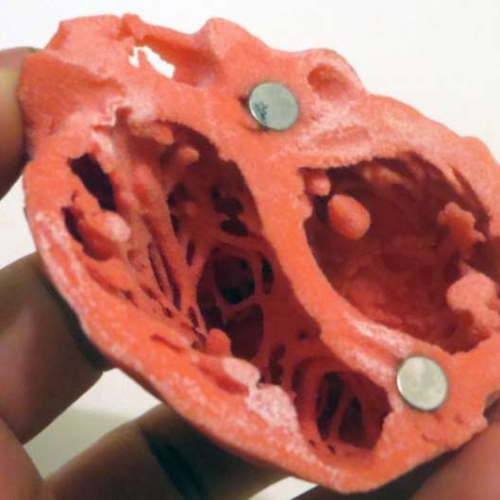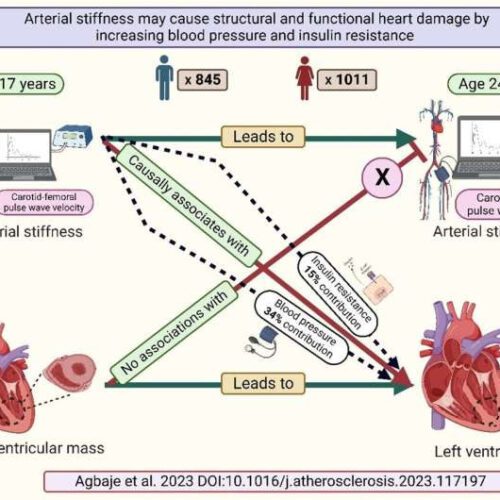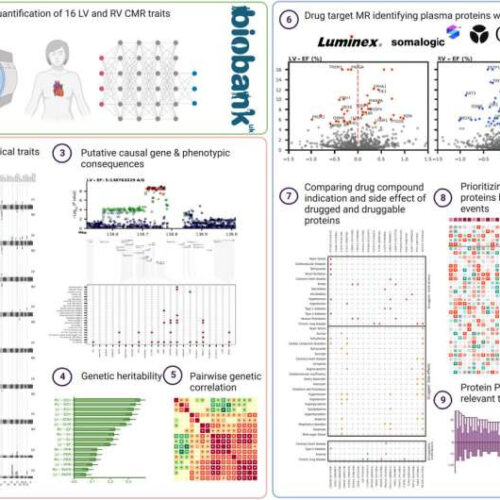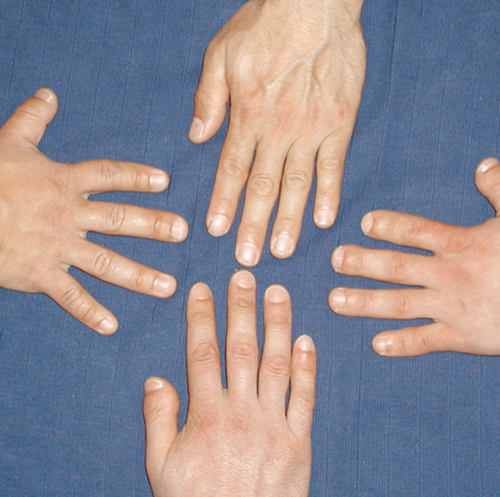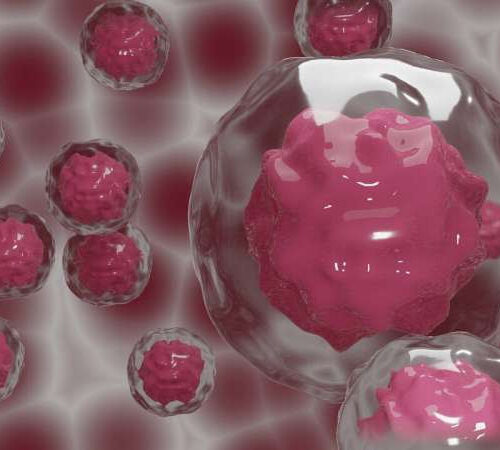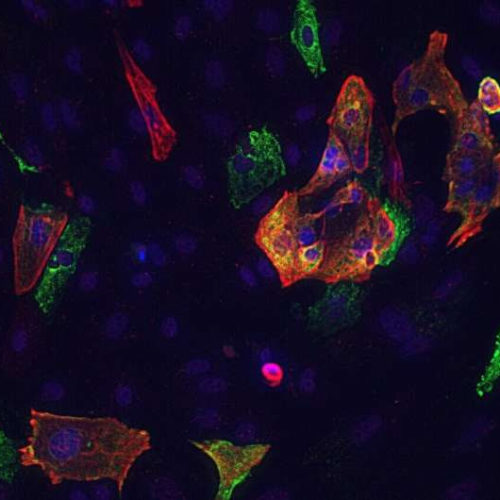by Northwestern University Credit: Pixabay/CC0 Public Domain Newborns with heart complications can rely on their newly developed immune systems to regenerate cardiac tissues, but adults aren’t so lucky. After a heart attack, most adults struggle to regenerate healthy heart tissue, leading to scar-tissue buildup and, often, heart failure. ADVERTISING A new Northwestern Medicine study in experimental...
Tag: <span>Heart damage</span>
Persistent tobacco smoking from childhood may cause heart damage by the mid-twenties
Peer-Reviewed Publication University of Eastern Finland image: In 1931 children followed up from age 10 to 24 years, persistent tobacco smoking from childhood through young adulthood caused structural and functional heart damage. Tobacco smoking excessively increases heart mass during growth from adolescence to young adulthood. Image: Andrew Agbaje.view more Credit: Andrew Agbaje The majority of children...
Scientists find a stem-cell derived mechanism that could lead to regenerative therapies for heart damage
by University of California, Los Angeles 3D Model of the heart by Dr. Matthew Bramlet. Credit: NIHA UCLA-led team has identified an essential internal control mechanism that can promote the maturation of human stem cell-derived heart muscle cells, offering a deeper understanding of how heart muscle cells develop from their immature fetal stage to their mature...
Arterial stiffness may cause and worsen heart damage among adolescents
by University of Eastern Finland Arterial stiffness may cause premature cardiac damage in youth, but decreasing blood pressure and insulin resistance may reduce this effect by 50%. Credit: Andrew Agbaje. Arterial stiffness is a novel cause of premature heart damage among adolescents, according to a new follow-up study. The study was conducted in collaboration between Texas...
Cause of heart damage from cancer drugs identified
by University College London Study infographic leveraging neural network analysis of biventricular CMR data and GWAS to prioritize plasma proteins with an effect on cardiac outcomes. CMR, cardiac magnetic resonance imaging (MRI); GWAS, genome-wide association study. Credit: Science Advances (2023). DOI: 10.1126/sciadv.add4984 Modern drugs can be very effective at treating cancer and have led to greatly improved survival...
No heart damage despite hypertension
MAX DELBRÜCK CENTER FOR MOLECULAR MEDICINE IN THE HELMHOLTZ ASSOCIATION IMAGE: SHORT FINGERS IN ONE FAMILY. CREDIT: SYLVIA BÄHRING For decades, scientists in Berlin have been researching a strange hereditary condition that results in half the members of certain families having unusually short fingers and extremely high blood pressure. If left untreated, the affected patients...
New cancer therapies that reduce the risk of heart damage
by Skylar Cuevas, Vanderbilt University Credit: CC0 Public Domain With modern-day cancer therapeutics presenting adverse side effects to heart health, scientists are studying methods to attack cancer cells without the risk of damaging the heart. Researchers Steven Townsend, associate professor of chemistry, and Neil Osheroff, John Coniglio Professor of Biochemistry and professor of medicine, synthesized the biological compound...
Mild COVID-19 infection is very unlikely to cause lasting heart damage
UNIVERSITY COLLEGE LONDON Mild Covid-19 infection is very unlikely to cause lasting damage to the structure or function of the heart, according to a study led by UCL (University College London) researchers and funded by the British Heart Foundation (BHF) and Barts Charity. The researchers say the results, published in JACC Cardiovascular Imaging, should reassure the public,...
Identifying the cause and potential treatment for COVID-19-induced heart damage
by QIMR Berghofer Medical Research Institute Credit: QIMR Berghofer Medical Research Institute QIMR Berghofer researchers have discovered some of the ways COVID-19 damages the heart, and identified a class of drugs that could potentially protect or reverse this cardiac injury. In severe cases of COVID-19, the immune system overreacts to the infection, releasing inflammatory molecules called cytokines into the bloodstream. This...
New forms of ‘red devil’ cancer drug could spare hearts
By Jocelyn KaiserJul. 1, 2020 , 1:20 PM Can the red devil be defanged? Doxorubicin, an old chemotherapy drug that carries this unusual moniker because of its distinctive hue and fearsome toxicity, remains a key treatment for many cancer patients. But a new study reports the drug can be tweaked to reduce its most punishing...
- 1
- 2

